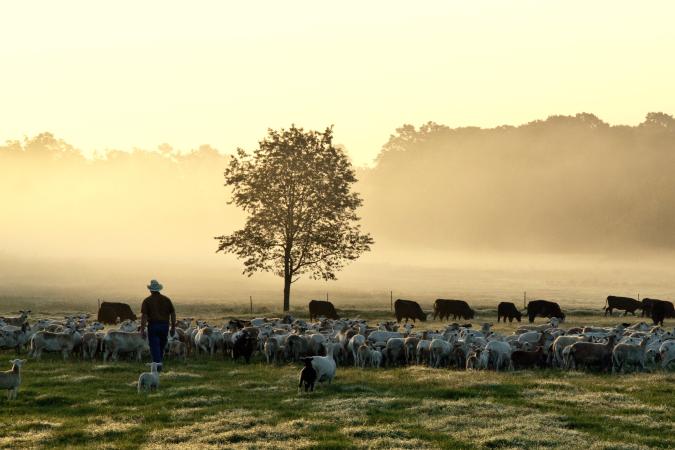
A long-time leader in human-scale, regenerative agriculture, WOP is transitioning more of their sales from lower-margin wholesale to direct-to-consumer retail.
Funded on 08/23/2023
The Harris family has continually operated their current farm since it was rebuilt after the Civil War in 1866. What started out as a diversified 19th century farmstead shifted with the times to an industrialized commodity farm in the mid-1900s. Now in its sixth-generation of family management, Will Harris and his children have brought White Oak Pastures full circle, becoming pioneers of the regenerative agriculture and grass-fed beef movement in the early 2000s. White Oak Pastures is now a fully-integrated business that includes on-farm processing and direct-to-consumer delivery of half a dozen different types of pasture-raised meat while also serving as an educational hub and economic engine for the surrounding community.
While wholesale markets provided the first significant opportunity for American-raised grass-fed beef, the lack of requirements for “country-of-origin labeling” allowed meat to be imported from all over the world and still sold as American-raised. As already thin wholesale profit margins have waned to unsustainable levels, White Oak Pastures is doubling down on a transition to more direct-to-consumer retail sales and e-commerce, the foundation of which they began building over a decade ago.
According to the Harris family, animal welfare has always been the “canary in the coal mine,” guiding all the rest of WOP’s regenerative practices. “Animal welfare led us to better land management,” Jenni Harris explains, “and better land management led us to a vertically integrated business that built a community.” Across their many business endeavors, the three core elements of White Oak Pastures’ stewardship are: animal welfare, land regeneration, and rural revival.
This loan will be made to White Oak Pastures, Inc., a Georgia Corporation, which processes and distributes regeneratively raised, grass-fed meat.
This loan will be used to refinance existing debt secured by the company’s processing facility, and fund all closing costs and fees including a 6-month interest reserve, with the balance of the loan to be distributed to the borrower for working capital.
The total loan amount is $1,192,000 which will assist White Oak Pastures in growing and expanding their business as they shift revenue generation priorities from wholesale to direct to consumer.
This is a secured loan with a First Priority lien on the real estate. The borrower’s interest rate for this loan is 7.5%, with a net interest rate of 7.0% being passed on to the lender (accounting for a .5% servicing spread). The loan has a 72-month term. The first 6 months of the loan term will be interest only and partially amortized monthly payments beginning 7 months after funds are disbursed. The loan will amortize on a 20-year schedule with a balloon payment of $1,020,033.94 due at maturity.
Get project announcements, farmer introductions, company updates, and more by subscribing to the Steward newsletter. Join our growing community of people who are making regenerative agriculture the foundation of our future.
Join a growing community of sustainably-minded lenders reaping the rewards from responsible farming